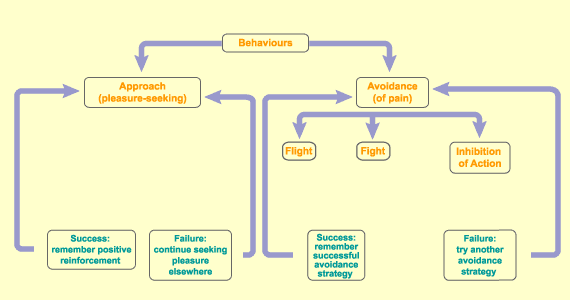Many behaviours of simple organisms such as bacteria or Republicans are immutable; a slight change of circumstance may spell extinction. And even complex organisms have simple neural reflexes -- eye-blink, knee-jerk, etcetera -- which cannot be 'unlearned'.Originally Posted by Papewaio
The word 'strategy' in itself implies a range of possible alternate behaviours. In complex organisms such 'strategies' arise out of very complex interactions between neural levels from the simplest reflex arc through the sympathetic and parasympathetic nervous systems to the cortex. The most elementary model looks something like this:
Now try and imagine, if you will, such a model for modern warfare in all its complexity. I can't. And while you're at it, please demonstrate the neural substrate for Nelson's decision to break with standing Navy orders regarding line tactics at Trafalgar...
Joking of course. What I mean to say is that biological models often result in what Karl Marx called 'Crusoe-ism': a model of human behaviour in isolation of its social context. Certain behaviours are presented as belonging to the 'nature' of the human animal out of which all social arrangements and interactions arise.
If warfare is the nature of the beast, how come so few people actually engage in it? It is an infinite minority that kills fellow human beings.








 Reply With Quote
Reply With Quote
Bookmarks